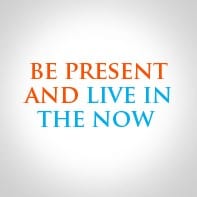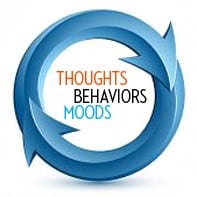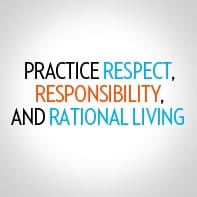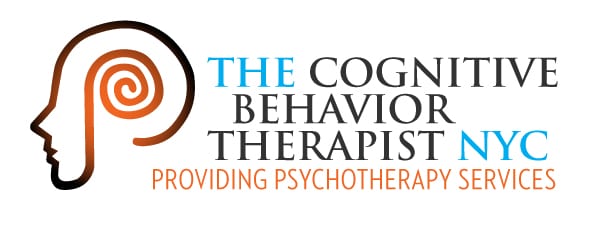Managing choice in a world with endless opportunity can be challenging to goals and happiness.
 Choice, freedom and autonomy are all part of American dream and no doubt fundamental to an individual’s sense of well being. Healthy people want to guide their own lives and feel as though they are taking advantage of the best opportunities. As a result we naturally tend to evaluate choices, look for improved opportunities and socially compare ourselves to others.
Choice, freedom and autonomy are all part of American dream and no doubt fundamental to an individual’s sense of well being. Healthy people want to guide their own lives and feel as though they are taking advantage of the best opportunities. As a result we naturally tend to evaluate choices, look for improved opportunities and socially compare ourselves to others.
But social research shows that our society is at a cross roads with the phenomena of the benefits of more “choice”. Executive coaches and therapist are reporting more and more stress and problems with clients dealing with too many choices. 
Too much choice can lead to negative feelings of anxiety, feeling overwhelmed and a sense of dissatisfaction. Causing unhealthy behaviors of paralysis, avoidance, distraction, overindulge and ruminating.
Mental process that mediate the negative effects of choices include regret, social comparison, and trying to maximize every opportunity based on unrealistic expectations.
Here are some ways how these mental processes can influence choice in both career decisions and personal behaviors.
-Post decision regret –This is when you have “buyer’s remorse”, you mentally and physically continue to evaluate new opportunities after you have settled on a decision. This continuous evaluation generates thoughts that undermine the original reasons why you settled on a decision in the first place. As a result, at a minimum you are not satisfied with choices and at maximum, it takes energy away from making the selected decision successful so you may create a self fulfilling prophecy of mediocrity or failure. For relationships at home and at work this might mean disloyalty, lack of commitment and trust.
-Anticipated regret – You cannot decide between choices because you fear you will make the wrong choice-so you don’t proceed until either choices are made for you or you have no options left. This can cause avoidance through paralysis and leads to lack of motivation & anxiety about decisions. This leads to poor follow through, procrastination and creates a pattern of not taking control.
– Social comparison – You pay attention to what others around you are achieving (better or worse) so that it takes away from energy invested in your success. Politically charged environments, competitive work teams and social media exposure can increase these habits. This not only invests your time in the wrong category but also might create benchmarks that don’t matter. One CEO that I interviewed for this article commented “if I spent time dwelling on the guys who got more girls in high school or who did better on their college admissions exams, I would have never achieved the level of success I have, instead I focused on making myself better.”
or worse) so that it takes away from energy invested in your success. Politically charged environments, competitive work teams and social media exposure can increase these habits. This not only invests your time in the wrong category but also might create benchmarks that don’t matter. One CEO that I interviewed for this article commented “if I spent time dwelling on the guys who got more girls in high school or who did better on their college admissions exams, I would have never achieved the level of success I have, instead I focused on making myself better.”
The truth is happier people pay less attention to others, and paying attention to how you measure up shows no up side in terms of success.
-Maximizing- (See my article on maximizing vs satisfacing) Maximizers spent too much time, energy and effort investigating the best for everything or close to it. Satisficers reserve maximizing when it matters and employ satisficing skills most of the time. This means you make a short list of important criteria and settle on the first thing you find that meets this criteria. This eliminates wasting time and energy from things that don’t matter as much
-Expectations and choice- The more exposures to choice the higher expectations become and alter biases. Think about it, if you live in an urban city like New York City you have endless choices of food but when you travel to more rural areas you feel a sense restriction because you cannot get anything delivered, anytime. Practical skills of managing expectations can be learned and applied so that deliberate expectations.
To learn more about how your thinking process effects your mood, behaviors and feelings in the office or in your personal life sign up for one of our consulting sessions or consider a workshop at your office place to increase productivity, motivation, and happiness in the workplace.
Dr. Albin offers private sessions (we accept out of network insurance plans) and group executive coaching and therapy sessions. Dr. Jayme Albin is a Licensed Clinical Psychologist, Executive Coach & Kundalini Yoga instructor. She authored “The Official Idiot’s Guide to Cognitive Behavioral Therapy” in 2015.
For information about scheduling an appointment in New York, New York or Southampton, New York or Virtual therapy Sessions via Skype call 212-631-1133 or email us info@cbt-newyork.com

Contact us today
Contact Us















